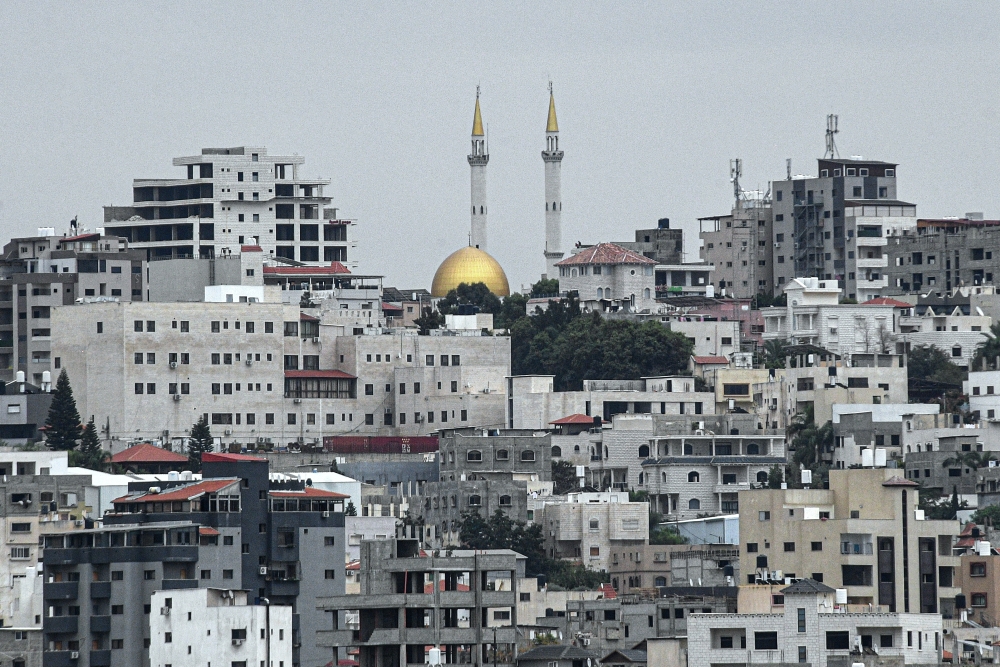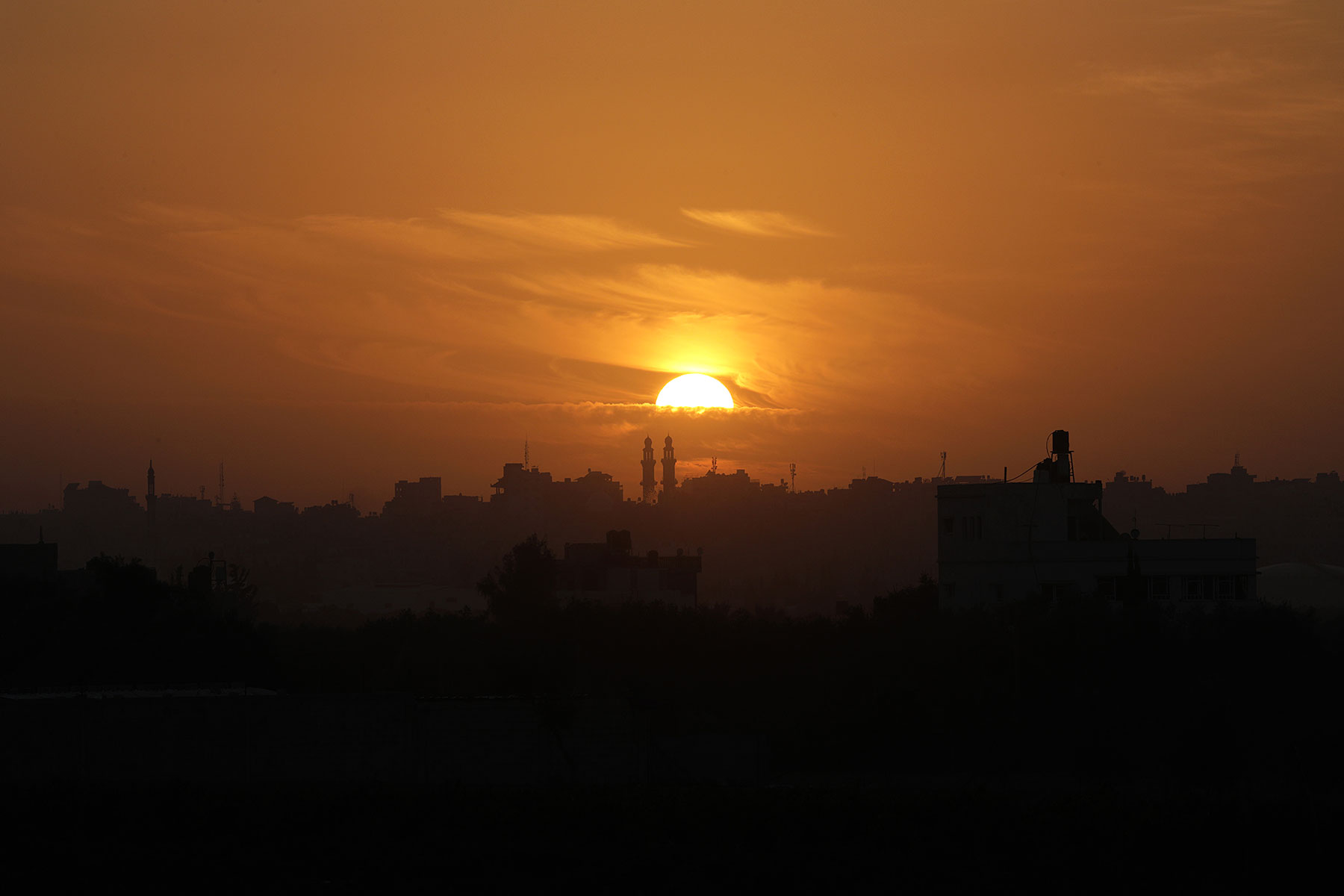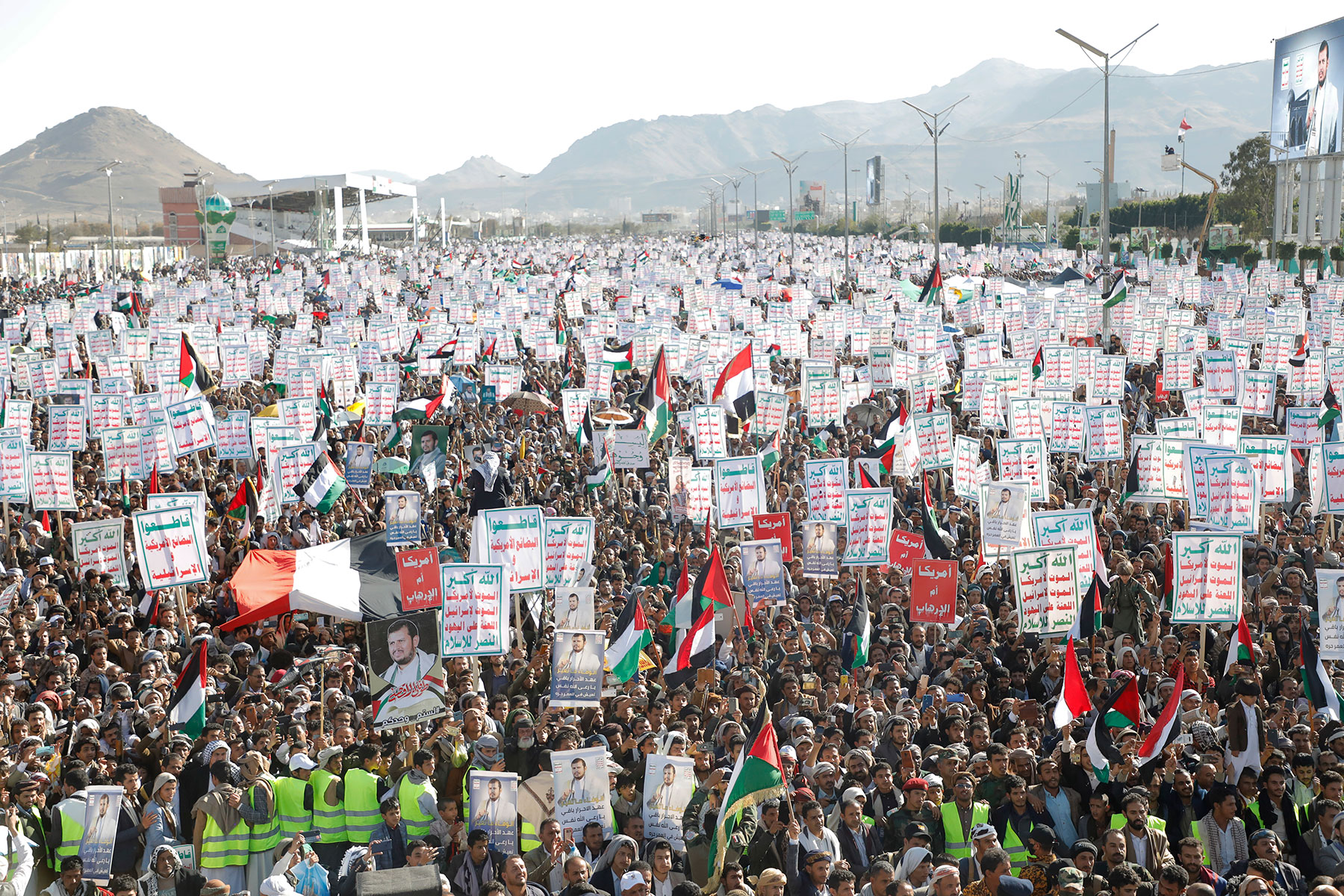Six months have passed since we saw another escalation in the Israeli-Palestinian conflict following a massive Hamas terror attack on October 7, 2023. After Palestinian militants killed some 1,200 Israeli civilians and took 253 others as hostages, Israel launched Operation Iron Swords in the Gaza Strip. The operation has proven to be more complex, costly and time-consuming than many predicted at its commencement. Timid hopes that everything could be completed before the onset of the holy month of Ramadan (that is, before March 11, 2024) crashed into the harsh realities of the battlefield. Hamas units in Gaza, despite heavy losses, have shown perseverance and adaptability to the new situation, returning again and again to the territories cleared by the Israel Defense Forces (IDF). The fighting still continues, but we can already capture the results of the six-month standoff.
Obviously, economic, political and reputational costs of the crisis proved to be unprecedentedly high for the Jewish State. The first three months of the operation alone cost 217 billion shekels (USD 59.2 billion), or 11% of GDP, making Iron Swords the most expensive conflict in the history of Israel. During the subsequent three months, these figures nearly doubled, and it is now clear it will take more than one or two years to overcome the consequences of October 7.
The Palestinian death toll in Gaza exceeded 33,000 people early in April, with women and children likely to account for a majority of the dead. 1.9 million of the Strip’s 2.2 million residents have lost their homes. The confrontation has affected not only the Gaza Strip but also the West Bank, albeit to a lesser extent: at least 500 people have been killed there since the escalation began, more than in any year since the second intifada of 2000–2005. All the Palestinian dead, as well as the Israeli dead (more than 600 Israeli military personnel have been killed since the commencement of the Gaza operation), have relatives, friends and neighbors—a new foundation is essentially laid today for a longer-term mutual antagonism and hatred.
Still, as many experts predicted, the past six months have shown that a major war in the region can be avoided. Consistent restraint was demonstrated not only by the neighboring Arab countries that have never had easy relations with Israel (Egypt, Jordan, Syria), but also by various non-state actors, including Lebanon’s Hezbollah and radical Sunni groups. Hezbollah has limited itself to sporadic rocket and artillery duels with the IDF and the confinement of a significant portion of the Israeli army in northern Galilee. The most internationally significant attacks by the Yemeni Houthis against commercial vessels in the Red Sea were massive indeed, but these attacks could not directly affect the course of Operation Iron Swords.
Six months after the ‘Iron Swords’ were drawn from their sheaths, the Middle East remains divided. Paradoxically, the “Arab street” has been less active and less influential in Cairo, Riyadh and Rabat than it has proved in Paris, London, Brussels or even Washington D.C. Bahrain, Jordan and Turkey have withdrawn their ambassadors from Israel, but most of the Arab parties to the Abraham Accords (the UAE, Morocco, Sudan) did not revise their positions on these agreements, nor did they downgrade their diplomatic relations with Israel. Street protests against Israel’s actions were virtually ignored by the authorities of those nations.
The global world is even more reluctant than the Middle East to unite around a solution to the Palestinian problem. First and foremost, because the great powers can no longer separate the Middle East from their global geopolitical controversy. Second, the recent events in the Middle East are perceived as a “zero-sum game,” where any success for Moscow means defeat for the West and vice versa. The Middle East Quartet, established in 2002 and consisting of Russia, the U.S., the UN and the EU, although not formally dissolved, has not been working for the past two years and cannot be considered an effective platform for overcoming the crisis.
Perhaps, the idea that the deeply rooted two-state paradigm has no workable alternatives needs to be clarified or even revisited?
Today may not be the best time to speculate about the long-term prospects for the Israeli-Palestinian settlement. The most important thing at the moment is to ensure that the Iron Swords are put back into their sheaths as soon as possible. But even this task does not negate the need to think about new approaches to a long-term settlement. The solutions proposed in the first half of the previous century do not necessarily correspond fully to the realities of our century (we should add that in the 1930s, too, the British government rejected the Peel Commission’s proposals for the partition of Palestine, given the difficulties of partial forced displacement of the Arab Palestinian population). New approaches to one of the most complex and intricate conflicts of our time can be in demand once the delayed, but still inevitable, fundamental transformations that will increasingly change both Palestinian and Israeli societies get underway.
Six months have passed since we saw another escalation in the Israeli-Palestinian conflict following a massive Hamas terror attack on October 7, 2023. After Palestinian militants killed some 1,200 Israeli civilians and took 253 others as hostages, Israel launched Operation Iron Swords in the Gaza Strip. The operation has proven to be more complex, costly and time-consuming than many predicted at its commencement. Timid hopes that everything could be completed before the onset of the holy month of Ramadan (that is, before March 11, 2024) crashed into the harsh realities of the battlefield. Hamas units in Gaza, despite heavy losses, have shown perseverance and adaptability to the new situation, returning again and again to the territories cleared by the Israel Defense Forces (IDF). The fighting still continues, but we can already capture the results of the six-month standoff.
The scope and scale of the crisis
Obviously, economic, political and reputational costs of the crisis proved to be unprecedentedly high for the Jewish State. The first three months of the operation alone cost 217 billion shekels (USD 59.2 billion), or 11% of GDP, making Iron Swords the most expensive conflict in the history of Israel. During the subsequent three months, these figures nearly doubled, and it is now clear it will take more than one or two years to overcome the consequences of October 7.
The Palestinian death toll in Gaza exceeded 33,000 people early in April, with women and children likely to account for a majority of the dead. 1.9 million of the Strip’s 2.2 million residents have lost their homes. The confrontation has affected not only the Gaza Strip but also the West Bank, albeit to a lesser extent: at least 500 people have been killed there since the escalation began, more than in any year since the second intifada of 2000–2005. All the Palestinian dead, as well as the Israeli dead (more than 600 Israeli military personnel have been killed since the commencement of the Gaza operation), have relatives, friends and neighbors—a new foundation is essentially laid today for a longer-term mutual antagonism and hatred.
Unexpectedly for many, Israel has completely lost the information war with Palestine: perhaps, never in the history of the Jewish State has the anti-Israeli—and even anti-Semitic—sentiment in the world been so popular and the sympathy for the Palestinians so unanimous. A few countries in the Global South have recalled their ambassadors, while some (such as South Africa) have broken off diplomatic relations with Israel altogether.
Still, as many experts predicted, the past six months have shown that a major war in the region can be avoided. Consistent restraint was demonstrated not only by the neighboring Arab countries that have never had easy relations with Israel (Egypt, Jordan, Syria), but also by various non-state actors, including Lebanon’s Hezbollah and radical Sunni groups. Hezbollah has limited itself to sporadic rocket and artillery duels with the IDF and the confinement of a significant portion of the Israeli army in northern Galilee. The most internationally significant attacks by the Yemeni Houthis against commercial vessels in the Red Sea were massive indeed, but these attacks could not directly affect the course of Operation Iron Swords.
Consequences for Palestine and Israel
If anyone expected that the escalation with Israel would somehow contribute to the consolidation of the Palestinian society, they should be disappointed. Divisions within Palestine persist along many lines: Hamas and Fatah, radicals and technocrats, Gaza and the West Bank, the outgoing and a newer generation of politicians. Attempts to help Palestinians find internal unity have repeatedly been made in recent months, including by Russia, which hosted a meeting of 14 major Palestinian factions in Moscow on February 29-March 2, 2024. Unfortunately, prospects for consolidation are now looking even more nebulous than prior to the crisis. Theoretically, the main factions could, under the pressure of extraordinary circumstances, quickly agree on the composition of a coalition government of “national salvation,” but the likelihood of such an arrangement looks dismal.
In a different political environment, internationally supervised elections could have facilitated consolidation. However, the only elections that were held in the Palestinian territories back in 2006 were precisely what brought Hamas to power in Gaza and resulted in the subsequent split between Gaza and the West Bank. There is reason to believe that new elections would lead to a similar result—at least, if elections are held in the near future. Meanwhile, Palestinian President Mahmoud Abbas turns 90 next year, and, as one can easily guess, the bitter struggle for his political legacy has already begun.
The situation in Israel looks more certain and predictable, but this certainty and predictability are unlikely to facilitate the settlement of the Israeli-Palestinian issue. Judging by opinion polls, Israeli society is willing to go all the way in the fight against Hamas, despite increasing external pressure and growing international isolation.
The “wartime government” established by Benjamin Netanyahu with the opposition forces had shown resilience during the six months. Sharp disagreements over domestic policy, social development and the country’s constitutional future have been put on hold until the end of the ongoing operation. The sensitive economic and other costs involved in mobilization have not yet led to an upsurge of anti-war sentiment in the country, although some signs of growing opposition to the continuation of the war in Gaza are already emerging.
According to polls, some 75% of Israelis believe it would be desirable for the current PM to vacate his seat as soon as possible. Nevertheless, Netanyahu clearly does not want to hold early elections, intending to remain in power until April 2025 in the least. However, it is far from obvious that the possible defeat of the ruling Likud party and the replacement of Netanyahu with his namesake Benjamin Gantz could radically change the country’s political landscape.
The region and the world
Six months after the ‘Iron Swords’ were drawn from their sheaths, the Middle East remains divided. Paradoxically, the “Arab street” has been less active and less influential in Cairo, Riyadh and Rabat than it has proved in Paris, London, Brussels or even Washington D.C. Bahrain, Jordan and Turkey have withdrawn their ambassadors from Israel, but most of the Arab parties to the Abraham Accords (the UAE, Morocco, Sudan) did not revise their positions on these agreements, nor did they downgrade their diplomatic relations with Israel. Street protests against Israel’s actions were virtually ignored by the authorities of those nations.
As far as we can see, the crisis has not led to a freeze in contacts between Israel and Saudi Arabia; moreover, Riyadh’s position on the normalization of bilateral relations has recently shown more flexibility than ever before. At the November 2023 summits of the Arab League and the Organization of Islamic Cooperation, an oil embargo against Israel was unanimously rejected by the UAE, Saudi Arabia, Morocco and Bahrain. It should also be remembered that relations between most of the wealthy Gulf states, as well as Egypt and Jordan, and the Palestinians remain complicated. Hamas has few consistent supporters in the Arab world, and the continuing uncertainty about Gaza’s post-conflict future makes it difficult to reach any practical decisions about allocating resources to rebuild the Strip’s infrastructure.
The global world is even more reluctant than the Middle East to unite around a solution to the Palestinian problem. First and foremost, because the great powers can no longer separate the Middle East from their global geopolitical controversy. Second, the recent events in the Middle East are perceived as a “zero-sum game,” where any success for Moscow means defeat for the West and vice versa. The Middle East Quartet, established in 2002 and consisting of Russia, the U.S., the UN and the EU, although not formally dissolved, has not been working for the past two years and cannot be considered an effective platform for overcoming the crisis.
As for the UN Security Council, in the last months of 2023, it made four attempts to agree on a resolution for a ceasefire in Gaza, but they failed. Only on March 25, 2024, after much negotiation, did the Security Council adopt a resolution calling for a ceasefire during Ramadan, but it had no practical effect on Operation Iron Swords. There is even less hope for the peacekeeping resolutions of the UN General Assembly, which invariably produce torrents of outraged rhetoric from Israel.
Paradigm shift?
Albert Einstein is credited with saying: “Insanity is doing the same thing over and over again in expectation of a different result.” For many decades now, since Britain’s Peel Commission of 1937 was formed, the international community has been searching for suitable options to solve the Jewish-Arab and then the Israeli-Palestinian problem within a Two-State paradigm. This paradigm is again put forward as the only viable solution even after the events of October 7. However, one era succeeds another, new generations of Israeli and Palestinian leaders take the place of their predecessors, but the solution to the problem keeps slipping away, although at times it seemed to be at arm’s length. Perhaps, the idea that the deeply rooted two-state paradigm has no workable alternatives needs to be clarified or even revisited?
Today may not be the best time to speculate about the long-term prospects for the Israeli-Palestinian settlement. The most important thing at the moment is to ensure that the Iron Swords are put back into their sheaths as soon as possible. But even this task does not negate the need to think about new approaches to a long-term settlement. The solutions proposed in the first half of the previous century do not necessarily correspond fully to the realities of our century (we should add that in the 1930s, too, the British government rejected the Peel Commission’s proposals for the partition of Palestine, given the difficulties of partial forced displacement of the Arab Palestinian population). New approaches to one of the most complex and intricate conflicts of our time can be in demand once the delayed, but still inevitable, fundamental transformations that will increasingly change both Palestinian and Israeli societies get underway.







